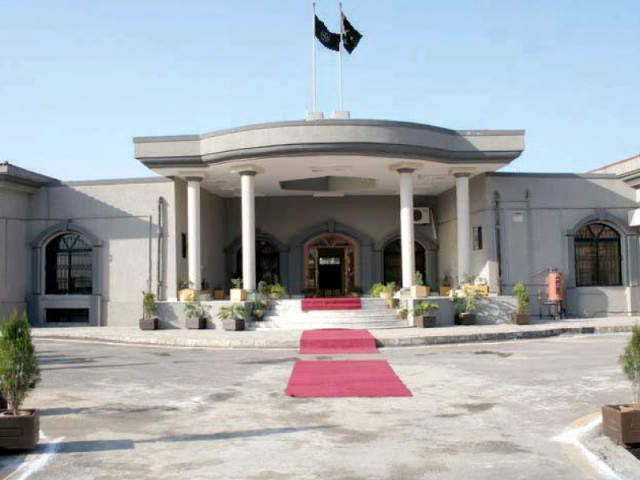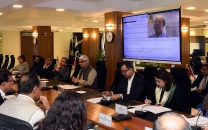‘Clipping’ courts’: Powers court moved against anti-terrorism ordinance
Former DIG submits petition in IHC citing some clauses controversial.

Islamabad High Court. PHOTO: FILE
A former police official has challenged in a local court the anti-terrorism ordinance promulgated by President Mamnoon Hussain recently that may curtail courts’ powers.
Justice Riaz Ahmed Khan of the Islamabad High Court (IHC) on Thursday admitted the petition filed by former Deputy Inspector-General (DIG) of police Samiullah Khan and referred it to the Chief Justice Muhammad Anwar Khan Kasi.
The petitioner has made President Hussain as respondent, who promulgated the Anti-terrorism (Amendment) Ordinance, 2013 last week.

The petitioner has highlighted loopholes in various clauses of the ordinance and said the power of the high courts had been curtailed as a result.
According to the petitioner, high courts have the authority to quash first information reports (FIR) against anyone under Section 561-A of the Criminal Procedural Code (CrPC) but through this ordinance, the powers had been taken away from the courts.
Similarly, the petitioner pointed out that through the ordinance, the police have given powers to detain any person without solid reason and can even kill anyone without any reason.
The petitioner maintained that if anyone fails to prove his or her identity to the police, they can be picked up and the high courts would not be able to question their detention.
He also said that District Management Group officers of grade-18 and above would be appointed on judicial sides despite the presence of judicial officers who are already working there.
“This is a way to bring the bureaucracy into the affairs of the judiciary,” Khan said. He requested the court to set aside the ordinance.
Talking to The Express Tribune, Khan said the ruling Pakistan Muslim League-Nawaz (PML-N) government had promulgated the ordinance in haste. “How is it possible that the government approves an ordinance without taking onboard all the stakeholders”, he asked.
He claimed that the first three paragraphs of the ordinance were in favour of the public which was highlighted in the media but the remaining controversial clauses were concealed which clearly indicated the ordinance’s many drawbacks.
Published in The Express Tribune, October 25th, 2013.



















COMMENTS
Comments are moderated and generally will be posted if they are on-topic and not abusive.
For more information, please see our Comments FAQ